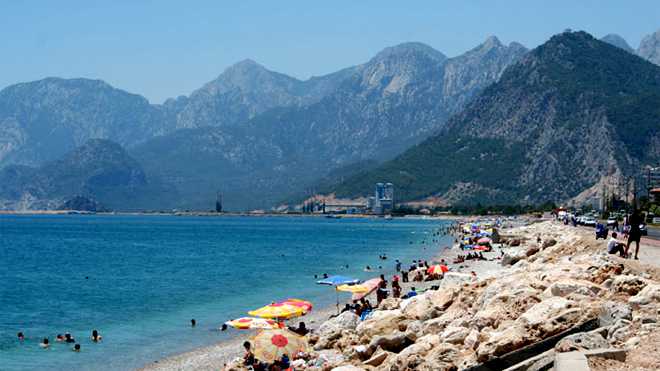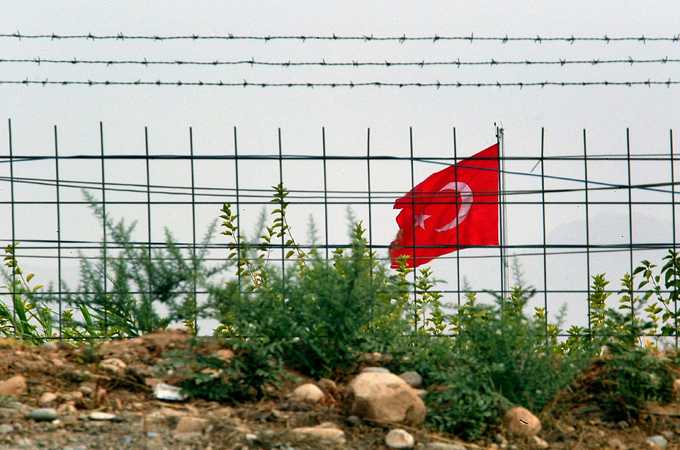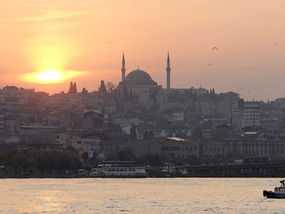Netanyahu government holds first meeting Sunday 5 April: Binyamin Netanyahu, opening his first cabinet meeting Sunday, April 5 in Jerusalem, said the security cabinet would draft Israel’s peace and security policy in the coming weeks. The cabinet’s agenda covered the urgent passage of the delayed 2009 state budget – possibly at a special Knesset session Monday, the introduction of a basic law amendment for biennual state budgets and boosted welfare aid to help the needy celebrate Passover.
Israeli layoffs peaked in March with 20,000 applicants lining up for jobs compared with 17,800 in February.
On May 3, Netanyahu is due to visit Washington for talks with US president Barack Obama. On April 16, US Middle East envoy George Mitchell arrives in Jerusalem for his first talks with the new Israeli government.
April 7 briefs: – Palestinian rock-throwers injure Israeli motorist on West Bank road.
– Border Guards detain Palestinian carrying four firebombs into Hebron’s Cave of Patriarchs.
– Palestinian driver shot dead after running down and injuring three Israeli police officers at Jerusalem village of Tsur Baher Tuesday.
The police were there to seal off home of Palestinian who killed three Israelis with bulldozer last year on Jerusalem high street.
Saudis also dismayed by Obama’s seeming tolerance of Iran’s nuclear drive 07 April: On the sidelines of the G20 summit in London, Saudi King Abdullah took the US president sternly to task over his emerging policy on Iran, Syria and Iraq, accusing him to giving the Islamic Republic free rein for its nuclear, expansionist and terrorism-sponsoring Middle East policies.
As for Israel’s concerns, President Shimon Peres pointed out to visiting US congressmen in Jerusalem Monday that Iran had hoodwinked the entire world in its drive for a nuclear bomb whose main target would be the Jewish state; Israel’s population is short of adequate means of self-defense.
Deputy Chief of Staff, Maj. Gen. Dan Harel warned that a nuclear-armed Iran would shield Middle East terror groups, so magnifying the threat to Israel manifold.
But, he added, the IDF was fully capable of backing up any government decision to tackle this existential threat.
Kazakhstan bids for Israeli role in Baikonur, Russia buys Israeli drones 08 April: Kazakhstan is negotiating for Israel to launch its communications satellites from Baikonur to help turn this space launching facility into a going international business venture long term.
DEBKAfile’s military sources report that Russia, which built the satellite launching station in 1955 for its own use, does not object, because it is constructing a replacement cosmodrome on its own soil and also developing its own military and aviation industrial ties with Israel.
Moscow has bought its first unmanned aerial vehicles from Israel for $50 million, the first of more purchases to come. They are Israel Aerospace Industries’ Bird-Eye 400 for escorting ground units and surveillance, I-View MK150 – a short range UAV system intended for operation with medium tactical echelon levels, and Search MK II, an unmanned air vehicle armed for combat (UCAV).
Jerusalem stammers, Washington deaf to Iran’s race for nuke
DEBKAfile Exclusive Analysis 10 April: For most of the past decade, Washington and successive Israeli governments have shunted aside to “the international community” and “diplomatic engagement” Iran’s hellbent race for nuclear armament and the missiles for its delivery. New administrations have just taken over in the United States and Israel – but nothing has changed.
Thursday, April 9, Mahmoud Ahmadinejad announced Iran had completed the nuclear fuel cycle and produced two new high-capacity enrichment centrifuges. He had no fear of retribution.
Astonishingly, US secretary of state Hillary Clinton said his claims were not a rebuff to the offer of five Security Council permanent members and Germany of talks in which the US would be fully engaged.
Her consignment of Iran to insuring that the UN International Atomic Energy Agency was “a source of credible information…” must have amused veteran Iranian hands even in Washington.
For nine years or more, the IAEA has missed every twist and turn on the roads to a bomb followed by Iran and North Korea, starting from the nuclear black market run by Pakistan’s Dr. A.Q. Khan for the benefit of Iran, North Korea and Libya, then North Korea’s nuclear arsenal and ballistic development, followed by Syria’s plutonium reactor. Now come Iran’s nuclear advances in barefaced defiance of the “international community,” a week after North Korea test fired a long-range missile which the US and its allies failed to deter or intercept.
As for Jerusalem, a “top source” said “Israel does not object to talks between the West and Iran as long as Iran does not take advantage of these talks” – which is exactly what Tehran has been doing for years. Israel expects the international community [again] to act firmly to prevent Iran from obtaining nuclear weapons,” and will discuss he issue in Netanyahu’s talks with Obama next month, the source said. Oh yes? Isn’t that where we came in three governments ago?
11 April: Shimon Shiran, 57, died of wounds suffered 7 years ago in a Palestinian suicide attack on Haifa Matza restaurant. In dying he raised the death toll from that attack to 16, including his 17-year old daughter.
Washington Helps Curtail Iran’s Covert Thrust into Egypt
DEBKAfile Exclusive Report11 April: Israel has repeatedly warned Egypt that an Iranian multi-branched covert ring would undermine Egyptian security in Sinai and the Suez Canal before turning against Egypt proper. From early 2006, Egyptian and Western security services and Israeli intelligence have been aware of Hizballah’s smuggling operations for Hamas on behalf of Tehran and Iran’s covert networks in Sinai and the Suez Canal cities of Port Said, Suez and Ismailia.
Last Wednesday, April 8, Cairo disclosed that Egyptian security forces had arrested 49 men, 41 Egyptians, seven Israeli Arabs, and one Lebanese citizen on charges of supporting Hamas and Hizballah. Iran was not mentioned. The arrests had begun last November and were continuing.
The disclosure sparked a slanging match between Cairo and Hizballah leader Hassan Nasrallah. The latter admitted that the network’s head, Sami Shehab, belonged to Hizballah and had provided Hamas with money and logistical support, “for which we are not ashamed.”
He thus confirmed a long-held Israeli intelligence contention.
An Egyptian source shot back by calling Nasrallah an Iranian agent and accusing him of organizing subversion against the Cairo government to divert attention from Tehran’s nuclear ambitions. Neither party spoke of a major undercover Iranian network operating in Egypt for three years, eventually to hook up with clandestine Iranian cells in Somalia and Sudan, an outer safety belt as a counterweight to the US naval presence and deterrent against a strike on its nuclear facilities.
Six months ago, Cairo began rolling up the Iranian ring, but only after the US beefed up its naval strength in the Gulf of Suez and Red Sea and assured Cairo that more would be done.
April 12 briefs: – Netanyahu tells Abbas he will resume talks and cooperation to promote peace.
– Palestinian leader called him with Passover greetings, later called President Peres.
– Jewish Priests Blessing was celebrated at Jerusalem’s Western Wall on fifth day of Passover.
– Jerusalem’s Christian shrines packed with Easter pilgrims of many denominations. |
Egyptians close in on Iranian-Hizballah arms-smuggling base in Sinai
DEBKAfile Exclusive Report
13 April: Egyptian security forces are closing in on a secret Iranian-Hizballah headquarters in central Sinai which has been organizing the flow of smuggled arms to Hamas in the Gaza Strip. Cairo’s intelligence points to three possible locations: Wadi Umar or neighboring Nahel, Beir Hasneh and Badr al Hittain.
As part of the operation, a 500-strong Egyptian force in armored vehicles carried out a surprise raid on Bedouin territory Monday, April 13. They found nothing but sparked a confrontation with the tribes. The Bedouin chiefs accused Cairo of violating the treaty between them by entering their territory without warning; they threatened a general lockdown in reprisal.
Under the same treaty, the chiefs are obliged to report to the Egyptian authorities on any foreigners present. Cairo suspected them of holding back this information and covering up for the Iranian-Hizballah smuggling command center.
Palestinian remote-controlled explosives boat intercepted near Israeli shore 13 April: Israel’s chief of staff Lt. Gen. Gaby Ashkenazi said the unmanned Palestinian “fishing boat” from the Gaza Strip which exploded 400 meters from the Israeli coast Monday, April 13 was heading for an Israeli naval vessel packed with hundreds of kilograms of explosives. DEBKAfile’s military sources report that it was detonated by remote control from the shore.
Israeli counter-terror forces have been on the alert on air, sea and land for the eight-day Passover festival which ends Wednesday. They suspect Palestinian terrorists of trying out a new method of attacking Israeli coastal targets or offshore Israeli Navy units by means of exploding sea craft driven by remote control.
Palestinian sources claimed earlier that it was a regular fishing boat which came under Israeli naval fire. They do not explain why it was unmanned.
Peres threatens military strike
DEBKAfile Special Report 13 April: Sunday, Israeli President Shimon Peres told an Israeli radio interviewer that if President Barack Obama’s diplomatic efforts to prevent Iran from going nuclear failed, “We’ll strike him,” referring to Iranian President Mahmoud Ahmadinejad.
Later senior Iranian negotiator, Said Jalili phoned EU official Javier Solana to correct the impression by saying Tehran “welcomed talks”, but he did not contradict the conditions laid down by his superior.
Ali Larijani, speaker of the Iranian parliament (Majlis) who said: “The Iranian government will only conduct international negotiations on the nuclear issue that are approved by the parliament and the legislature will closely monitor all such talks.”
He then added: “The proposal by some members of the 5+1 group calling for more intrusive inspections of Iran’s nuclear activities is not legal.”
In 2007, the Majlis banned the cessation of uranium enrichment and prohibited concessions on Iran’s nuclear program.
Iran plans a second, bigger satellite launch 14 April: Tuesday, April 14, as North Korea reactivated its nuclear weapons facilities in defiance of UN resolutions, Iran’s president Mahmoud Ahmadinjad announced plans to send a second satellite into space, this one on a rocket with a range of 1,500 km.
The launch of its first home-made satellite Omid in February, ostensibly for “peaceful telecommunications,” demonstrated Tehran’s acquisition of long-range ballistic technology usable for delivering nuclear warheads. The next satellite would be bigger than Omid and have a longer range.
Tuesday, North Korea decided to expel international inspectors and reactivate its nuclear facilities in retaliation for the UN Security Council’s c unanimous condemnation of its long-range Taepodong 2 missile launch last week. Pyongyang also announced its withdrawal from the six-power talks on its nuclear program.
Clearly, both North Korea and Iran are moving ahead on parallel courses, impervious to Western condemnation (of North Korea) and concessions (to Tehran) for the sake of diplomatic engagement.
Their courses undoubtedly intersect. Of late, a ship that travelled from North Korea to Iran last December is suspected of having several dozen tons of enriched uranium hidden in its cargo.
Ahmadinejad boasts Iran forced Washington to retreat on enrichment halt 15 April: President Mahmoud Ahmadinejad crowed Wednesday, April 15: “Iran’s resistance and progress in nuclear technology forced Washington to retreat from its position…” Following the suggestion that the six powers’ could waive the US demand for Iran to give up enriching uranium as a pre-condition for talks, the Iranian president said: “You know well that today you are suffering from weaknesses. You have no choice.”
He said contemptuously that Tehran was preparing a “new package” in response to the US, Britain, China, France, Germany and Russia’s invitation to negotiations and “When it is ready we will present it to you.”
Israel has military resources to destroy Iran’s nuclear sites – Washington sources 15 April: A prestigious Washington think tank – the Center for Strategic & International Studies (CSIS) – has concluded by means of detailed research and analysis that Israel is militarily capable of destroying Iran’s nuclear program. This view is shared by the Adm. Mike Mullen, Chairman of the Joint US Chiefs of Staff, who asked recently if Israel could carry off an attack on Iran, replied tersely: “Yes.”
Sole surviving Mumbai massacre suspect goes on trial, as India goes to polls
15 April: Mohammed Aimal Kasab, 21, a Pakistani, faces possible execution five months after a terrorist siege in which he and 10 gunmen took part killed more than 160 people. The dozen charges include murder, conspiracy to wage war and terrorism. The court sacked his defense lawyer over a conflict of interest, delaying the trial. A replacement must be found by Legal Aid before the trial can proceed.
The trial opened the day before 700 million Indians begin month-long polling for a new leader and the lower house of parliament. Security was high on the campaign agenda. Indian Army Chief Gen. Deepak Kapoor warned that women are being trained “on the other side” to infiltrate into Jammu and Kashmir.
Gates totally opposes Israeli strike on Iran 16 April: The US defense secretary Robert Gates Said again Wednesday: “A strike probably would delay Tehran’s nuclear program one to three years, it would unify Iranians, cement their determination to have a nuclear program and also build into the whole country an undying hatred of whoever hits them.”
Taking issue with Gates, DEBKAfile’s military sources note that he avoided spelling out the words “nuclear weapon” – as though to blur the fact that this is Iran’s goal. As for his use of “undying hatred,” in the future tense, he may not have noticed that the radical Islamic regime bombards its people night and day with their undying hatred for Israel and calls to “wipe the Jewish state off map.” |






